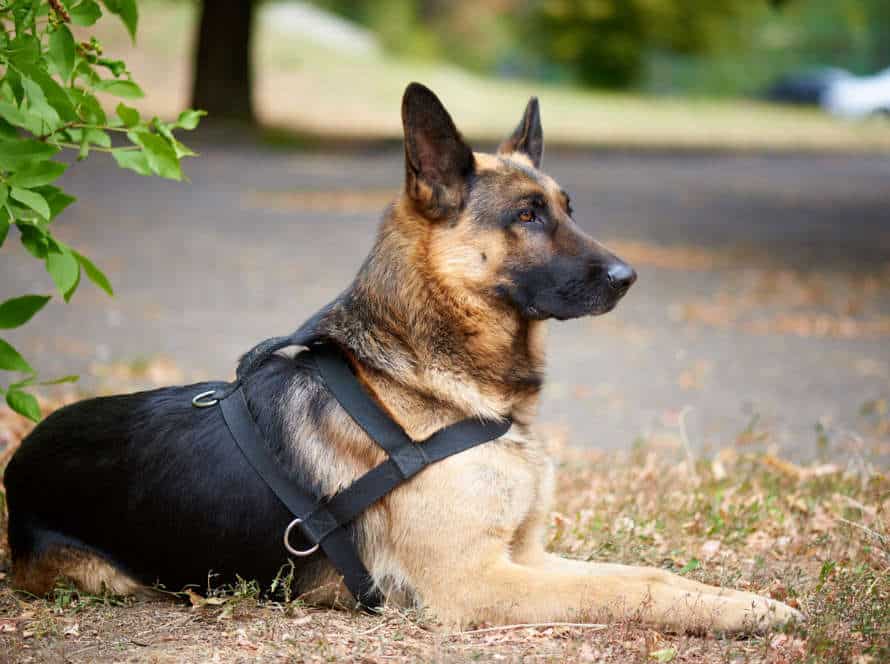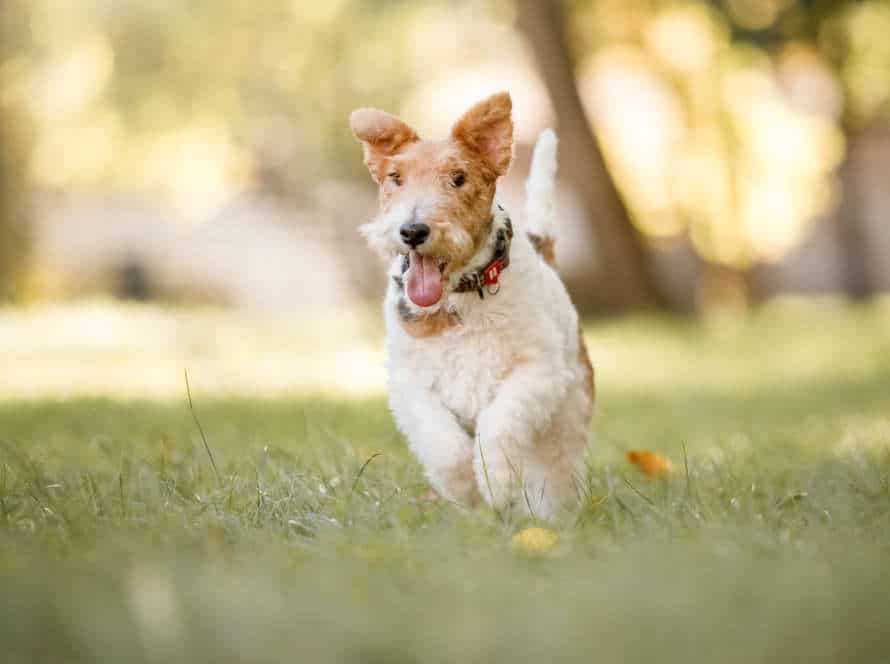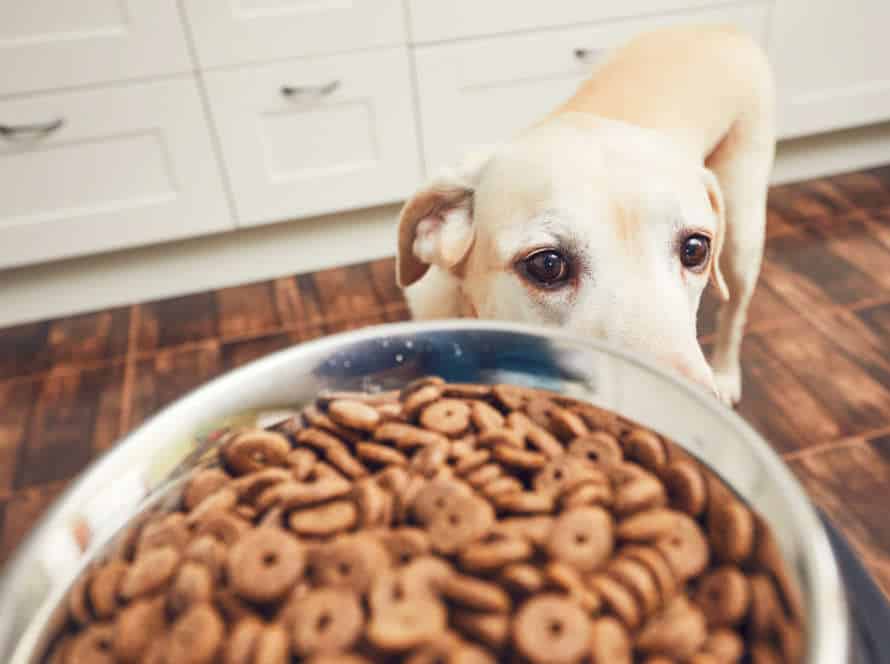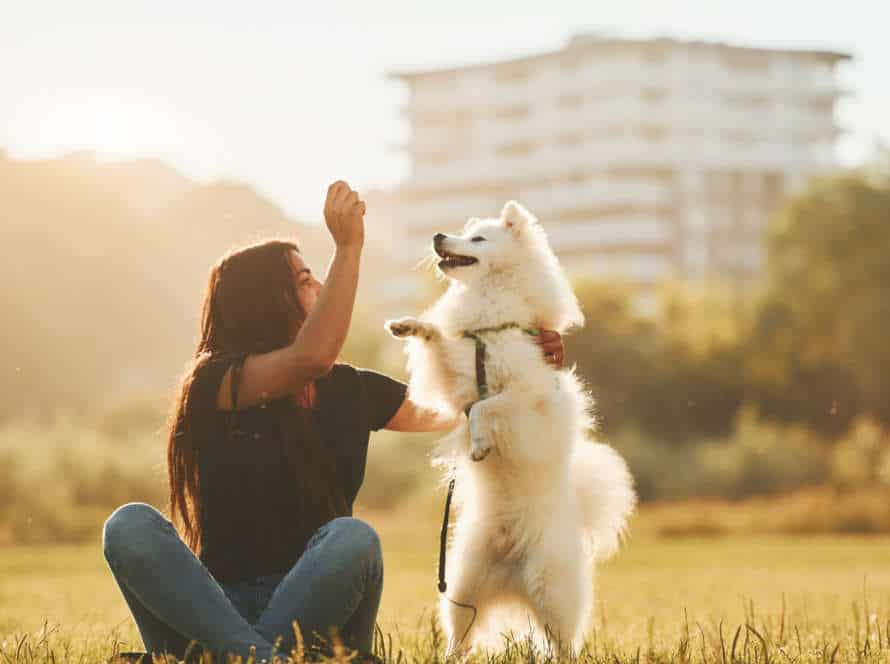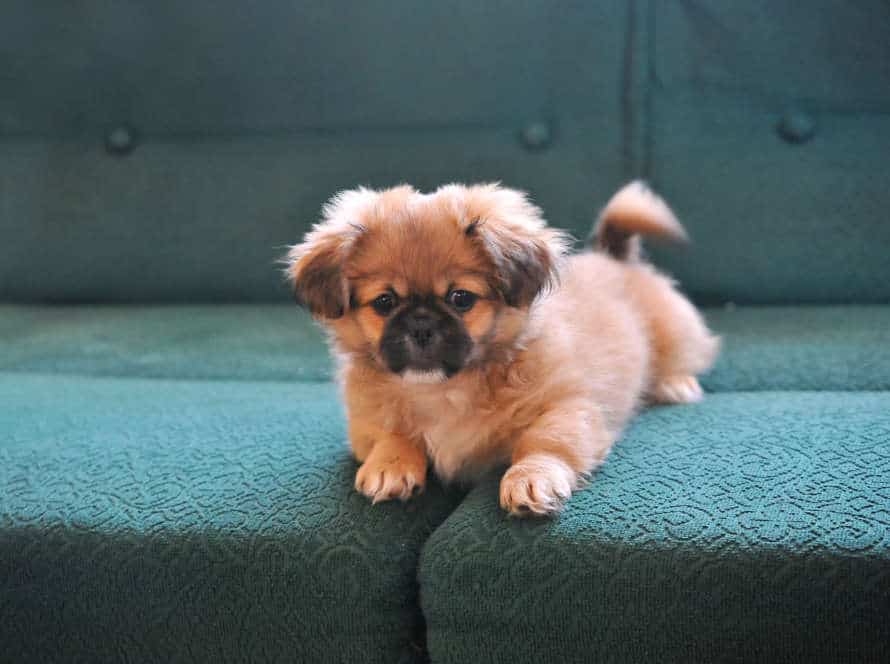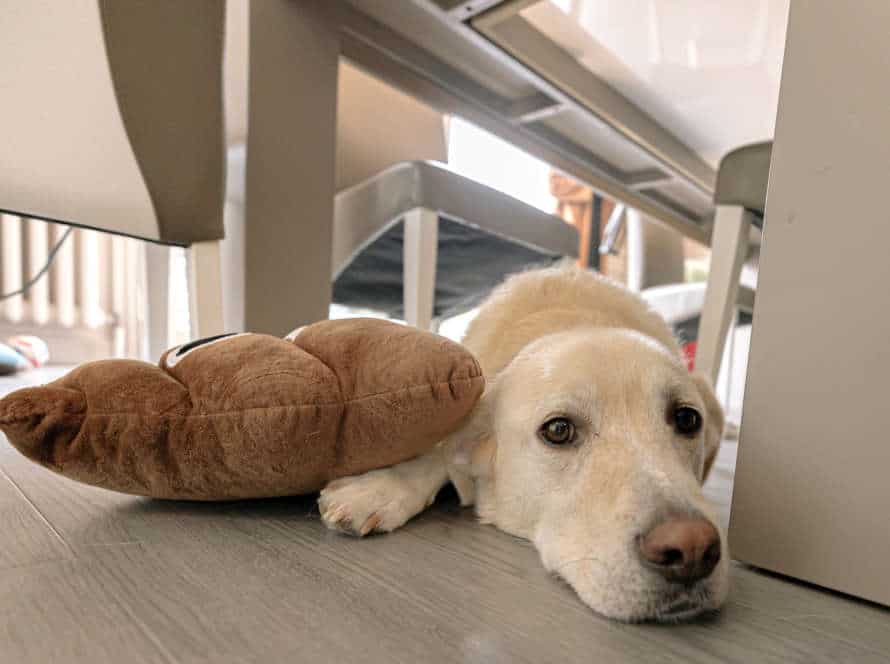Puppy Socialization: The Key to Preventing Aggression
Puppy socialization is vital! It helps stop aggression and form good habits in puppies as they grow. It involves introducing your puppy to new places, people, animals and activities. When puppies are not given the right socialization, they can become scared or aggressive when faced with something new. Here are some tips:
- Start early, from 3-14 weeks, use positive reinforcement like treats and praises.
- Take your puppy to parks, stores, and homes for them to meet different people, animals, and objects.
- Encourage friendly behaviour towards other dogs. Don’t force your pup to interact with aggressive or intimidating ones.
Remember: Socialization should be a gradual process. Be patient and consistent for the best results!
Why is Puppy Socialization Important?
Puppies need socialization! It’s essential for them to learn the right reactions and behaviors. Socializing your pup when they’re young can stop aggressive and problematic behaviors as they grow up. Socialization is the key to having a content and balanced pup. Let’s look at why it’s a must!
Understanding the Critical Socialization Period
Puppies have a critical socialization period that is vital for their development. This timeframe starts at 3 weeks old and continues until 14 weeks of age.
During this time, it’s important for puppies to interact with different dogs and people. This will help them learn appropriate behavior, become confident and happy.
It also prevents future aggression, fears and anxiety.
Pro Tip: Puppy socialization classes are a great way to introduce puppies to different social situations in a safe, controlled setting.
Preventing Behavioral Issues and Aggression
Puppy socialization is key to avoiding behavioral problems and aggression in dogs. Introducing your pup to people, dogs, and new settings during his early development helps him stay comfortable.
Here are the reasons why socialization is important for preventing aggression and issues:
- It builds confidence. Socialized puppies are more sure of themselves in unknown settings and scenarios, which reduces fear and worry.
- It creates predictable behavior. Socializing puppies helps them learn how to respond to different people, pets, and experiences.
- It stops over-dependency. If a puppy lacks socialization, he may become very dependent on his owner. This can result in anxiety, reactivity, and aggression.
- It creates positive experiences. Early socialization helps puppies develop good relations with new people, animals, and their environment.
Pro tip: Start socializing your puppy when he’s 3-4 weeks old and keep going until he’s 16-18 weeks old. Ensure he’s exposed to various people, creatures, and settings like parks and the vet.
Building Confidence and Reducing Fear
Puppy socialization is essential for raising a well-rounded and confident pup. Introduce your puppy to new experiences and surroundings from a young age to avoid fear and aggression as an adult.
Here are three ways socialization develops confidence and lessens fear:
- Exposure to new people and creatures: Meeting unfamiliar dogs, cats, humans and kids can teach your pup how to communicate and interact safely and positively. This can block fear reactions and aggressive behavior when exposed to new circumstances and people in the future.
- Positive reinforcement: Reward your puppy with yummy treats, compliments and toys for behaving nicely and facing new things. This assists in building confidence and forming positive connections with novel stuff.
- Confidence in handling: Socialization educates your pup to trust you as a handler, making it simpler to manage them during vet visits, grooming sessions, and other situations that can cause stress and anxiety.
Remember, socialization doesn’t finish after puppyhood. Keep introducing your dog to fresh experiences and environments throughout their life to maintain their abilities and confidence sharp.
When to Start Socializing Your Puppy
Socializing your pup? It’s a must! It’s a key part of making sure aggression stays away. But when’s the right time to begin? This article will tell you when, and why it matters.
Understanding Your Puppy’s Needs
It’s essential to grasp your pup’s needs for their physical and mental growth. Socializing is a key factor starting at 3 weeks and should continue till the pup is 4 months old.
Here are some tips to socialize your pup:
- Introduce them to new people, pets, and environments daily to get used to different experiences.
- Use treats and compliments to reward good conduct during socialization.
- Steadily increase the length and intensity of socialization sessions as your pup gets more content.
- Keep an eye on your pup’s behavior and body language during socialization to make sure they aren’t frightened or overwhelmed.
Pro tip: Socializing your pup early helps avert behavioral problems like aggression later in life.
Introducing Your Puppy to Environments, People, and Animals
Introducing your puppy to different places, people, and animals is essential for them to develop. This can help stop aggression in dogs, which is a major reason for pet euthanasia.
Get started with puppy socialization from 8 to 10 weeks old, once vaccinations are done.
Start off slowly, and introduce new environments. Use positive reinforcement and rewards.
Let your pup meet new people and animals in a safe space, while you supervise.
Expose them to different sounds and textures to help them get used to new situations.
Sign up for obedience classes, so they learn the right behavior, and how to socialize.
Socialization Do’s and Don’ts
It’s essential to socialize your puppy properly. To do this, you must know the do’s and don’ts of introducing them to people, pets, and surroundings.
Do’s:
- Begin early, 3-14 weeks, when pup is in socialization period.
- Gradually introduce pup to a variety of people, pets, & environments.
- Reward good behavior with treats & praise.
- Monitor reactions & body language. Remove pup if they show fear or distress.
Don’ts:
- Don’t force pup into a scary situation.
- Don’t let pup interact with unvaccinated pets or strays.
- No punishment or physical force.
- Don’t rush or overexpose pup.
By following these do’s and don’ts, your pup will grow into a confident adult dog!
How to Socialize Your Puppy
Socializing your puppy is essential! It helps to raise a content pup. To socialize your puppy, we’ll explain the details. It’ll aid preventing aggression, and maintain a healthy bond between you and your pet. Let’s learn how to get your pup comfy around other people and animals!
Managing Safe Playtime and Interactions
Socializing your pup is essential to stay away from aggression and maintain safe playtime and connections with other dogs and humans. Here’s how to do it right:
- Start young: The earlier you begin, the better. 3-14 weeks is the perfect age when they’re most open.
- Take them to different spots: Show your pup new people, sounds, smells, and textures.
- Reward good behaviour: Treats, praise, and playtime are great incentives for positive interactions.
- Remain patient and chill: If they’re anxious, don’t push them. Stay cool and encourage them with positive reinforcements.
- Puppy classes: They give your pup a controlled, secure atmosphere to socialize and learn basic commands.
If you follow these tips, you’ll have a sociable, friendly pup!
Exposing Your Puppy to New Environments and Stimuli
Socializing your pup is essential to forestall aggression and grow a well-adjusted adult dog. Expose your pup to new scenarios and stimuli to fulfill this goal. Here are some tips:
- Get your pup familiar with new people, pooches and animals in a controlled and positive environment.
- Bring your pup to parks, beaches and bustling streets, and let them experience new sounds, smells and textures.
- Increase the level of stimuli gradually to keep from overwhelming your pup.
- Utilize positive reinforcement techniques such as rewards and compliments to reward good behavior and construct trust.
Note: Socialization is a continuous process that should continue all through your canine’s life. The more exposure your pup has to fresh experiences, the more well-rounded and self-assured they will be as they become an adult.
Positive Reinforcement Training Techniques for Socialization
Positive reinforcement training can be great for socializing young pups. Here are some techniques to try:
- Introduce your puppy to new people, places, and things gradually and calmly. Use treats and praise to reward good behavior.
- Create positive associations by rewarding your pup when they remain calm and relaxed around new people or environments.
- Schedule regular playdates with other pups to help your puppy learn appropriate social skills.
- Use positive reinforcement to teach obedience commands, like “sit” or “stay”, which can make them feel more confident in new situations.
Socializing your pup is key for preventing aggression and helping them become a happy, healthy adult.
Pro Tip: Start socializing as early as possible for the best results.
Understanding Breed Specific Needs
Various kinds of puppies need diverse approaches for socialization. Being aware of the breed’s qualities and their needs can help you decide how to socialize your pup. Knowing the right way to socialize can help your pup learn acceptable behavior and avoid aggression. Let’s explore this further!
Socializing Small vs Large Breeds
Socializing small and large breed dogs requires different methods.
- Small Breed Dogs: They can be more fearful and anxious. Intimidation by larger dogs may lead to aggression. Start with low-stress environments, watch for signs of fear, and give positive reinforcement.
- Large Breed Dogs: They are usually more confident and outgoing. May challenge others and show dominance if they feel disrespected. Establish a strong leadership role, early socialization and training are important. Provide regular exercise and mental stimulation.
Socialization is vital to prevent aggression. Give your puppy positive experiences with people, dogs, and environments. This will help them to develop into a well-adjusted and confident adult dog.
Socializing Working Dogs vs Companion Pets
Working dogs and companion pets need different approaches. They have breed-specific needs that must be met to avoid aggression.
To motivate working dogs, they need strong leadership, socialization with people and other animals, and tasks to do. This is because they are bred to work, so need to be trained to use their energy for productive activities. Socialization for them should include getting used to various environments and experiences.
Conversely, companion pets are bred for companionship and need socialization to prevent fear-based aggression. They need to be exposed to different sights, sounds, and experiences. Obedience training can also help build a bond and structure between the pet and their owner.
It is important to know the breed-specific needs of your pet. This is to make sure you have an effective socialization plan to prevent behavioural issues. Pro tip: Ask a professional trainer or behaviourist to help you create a socialization plan for your pet.
Understanding Your Puppy’s Specific Breed Traits for Effective Socialization
It is vital to understand your puppy’s breed traits for socialization and preventing aggression. Each breed has diverse requirements and behaviors that owners need to take note of.
For example, herding breeds like Australian shepherds have an inborn desire to bite things that move or herd, so owners must train them appropriate biting behavior.
Likewise, toy breeds such as Chihuahuas may be more prone to shyness. Consequently, owners must introduce them to different people and dogs to avoid social anxiety.
It is essential to recognize your puppy’s breed-specific needs and give socialization chances accordingly. This might incorporate puppy classes, playdates, and meeting new people and animals often.
By understanding your puppy’s breed-specific needs, you can create a successful socialization environment, avoiding aggressive behavior in adulthood.
Frequently Asked Questions about Puppy Socialization
Puppy socialization is all about teaching pups to make friends with animals and people. It’s a must to socialize puppies. This stops them from being aggressive and keeps them at ease around others. Owners usually have questions about socializing pups. Here are some answers to the most common queries on puppy socialization and why it’s so essential.
What if my Puppy is Older?
Is it still possible to socialize an older puppy? Yes! It might take more patience and effort, but the benefits of socializing outweigh the challenges. Here are some FAQs to help guide you:
- Q: Is it too late to socialize my older pup?
- Q: How do I socialize an older puppy?
- Q: What if my older pup is aggressive towards people or other dogs?
A: No! Socialization is best during the puppy’s development stages, but older pups can still be socialized.
A: Start in a controlled environment. Gradually introduce new experiences and environments and reward good behavior with treats and praise.
A: Get professional help from a trainer or behaviorist. Aggression could be due to fear, anxiety, or lack of socialization, so it’s important to have a pro assess the situation.
Remember, socializing is key for preventing aggression and helping your pup be happy and well-adjusted!
Can my Puppy be Over-Socialized?
Yes, puppies can be over-socialized. This can lead to them being anxious, fearful, or even aggressive. Socialization is important, but do it in moderation and a controlled environment.
Questions about puppy socialization:
- Q: What is it?
- A: Exposing your puppy to different people, animals, sounds, and environments. Teaching them to adapt and respond.
- Q: When?
- A: 3 to 14 weeks.
- Q: Older dog?
- A: Yes, but it takes more time and effort.
- Q: Too much?
- A: If too much stimuli or not in a controlled environment.
Early and moderate socialization is key to preventing aggression and helping your puppy grow into a happy adult dog.
What if my Puppy Displays Aggressive Behavior during Socialization?
Puppies may show aggressive behavior during socialization. It’s important to address it quickly. Here’s what to do:
- Identify triggers. Observe your pup’s conduct and find out what causes their aggression. It may be other dogs, unknown people, or particular objects.
- Get professional help. Consult with a pro dog trainer or behaviorist, to create the right socialization and training plan for your pup.
- Keep sessions brief. Limit the period to a few minutes, and then build up over time, as your pup relaxes.
- Use positive reinforcement. Reward your pup with treats and compliments when they behave well in socialization sessions.
- Skip punishment. Don’t punish your pup for aggression, as it could make matters worse.
- Be patient. Be consistent and keep training. And don’t be afraid to ask for help. Socialization is key to stop aggression in puppies.
Pro Tip: Socialization can prevent 90% of behavioral issues in dogs.
Socialization Success Stories
Socialization is the key to stopping aggressive behavior in puppies. Countless success tales show its effectiveness. In this section, we’ll explore a few. Socialization can help prevent aggressive behavior, from basic training to more advanced methods. It’s been proven to be effective.
Real-life Examples of Puppy Socialization
Socializing your puppies is essential. It stops aggression and allows them to get on with other animals and humans. Here are 3 examples of successful puppy socialization:
- Rachel’s pup, Max, disliked strangers and other dogs. She took Max to obedience classes and dog parks. Eventually, Max became more sure of himself around new people and other animals.
- John’s pup, Lucy, used to bark and growl at other dogs in the area. John started to walk Lucy with a group of other dogs. He increased the frequency and length of the walks. Socializing her regularly made Lucy more cooperative and friendly with other dogs.
- Emily’s pup, Duke, was scared of strangers and would sometimes snap at them. Emily asked her friends and family to visit and gave Duke treats and praise when he stayed calm and friendly. This helped Duke become more relaxed around unfamiliar people, and learn to trust them.
These examples show that socializing puppies takes time and patience, but the results are worth it.
Testimonials from Experts and Pet Owners
Puppy socialization is essential for avoiding aggression with humans and other animals. Experts and pet owners agree.
Dr. Ian Dunbar, a vet and dog behavior specialist, recommends early socialization. He believes the first few months of a puppy’s life are the most important.
Sarah, a pet owner, introduced her puppy to others at puppy parties and training classes. She says this socialization is why her dog is so friendly.
Michelle Stern, a certified dog trainer, suggests positive reinforcement during socialization. Consistent, gentle, and rewarding experiences can teach puppies good behavior.
These stories show that early and positive socialization is necessary for preventing puppy aggression and raising great pets.
Benefits of Successful Puppy Socialization.
Socializing your pup is essential for their long-term joy and health. Benefits include:
- Reduced Aggression: Socializing early teaches puppies to be comfortable in different settings. They learn to adapt to people, animals, and environments.
- Increased Confidence: Socialization lets pups become less fearful when encountering new situations. They build trust in themselves and their instincts.
- Improved Health: Socialization also gives puppies the chance to exercise and stimulate their minds.
Pro Tip: Begin socializing your pup between 3 and 14 weeks. Well-socialized puppies grow up to be confident, sociable, and content dogs.
Frequently Asked Questions
1. What is puppy socialization, and why is it important?
Puppy socialization is the process of exposing puppies to different people, animals, and environments during their critical development period. It’s crucial for preventing aggression and helping puppies become well-adjusted adult dogs.
2. At what age should I start socializing my puppy?
Puppy socialization should begin as early as 7-8 weeks old, when they have received their first round of vaccinations. However, it’s never too late to start socializing a dog, and older dogs can benefit from socialization as well.
3. How often should I socialize my puppy?
Puppies should be socialized daily, ideally multiple times per day, with positive and safe interactions. Gradually increasing exposure to different people, animals, and environments over time provides the best results.
4. What are some key things to keep in mind when socializing my puppy?
Begin with positive and safe experiences, gradually increasing the level of challenge. Ensure all interactions are supervised, maintain a positive attitude and keep training sessions short, and always reward good behavior.
5. Can socialization really prevent aggression?
Yes, early and consistent socialization can significantly reduce the likelihood of aggressive behavior later in life. Exposing puppies to different stimuli helps promote a calm and confident demeanor and reduces the likelihood of fear-based aggression.
6. What should I do if my puppy shows signs of aggression despite socialization efforts?
If your puppy shows signs of aggression, it’s important to address the issue immediately. Consult with a qualified dog trainer or behaviorist to determine the root cause of the behavior and develop a plan for rehabilitating your dog.


